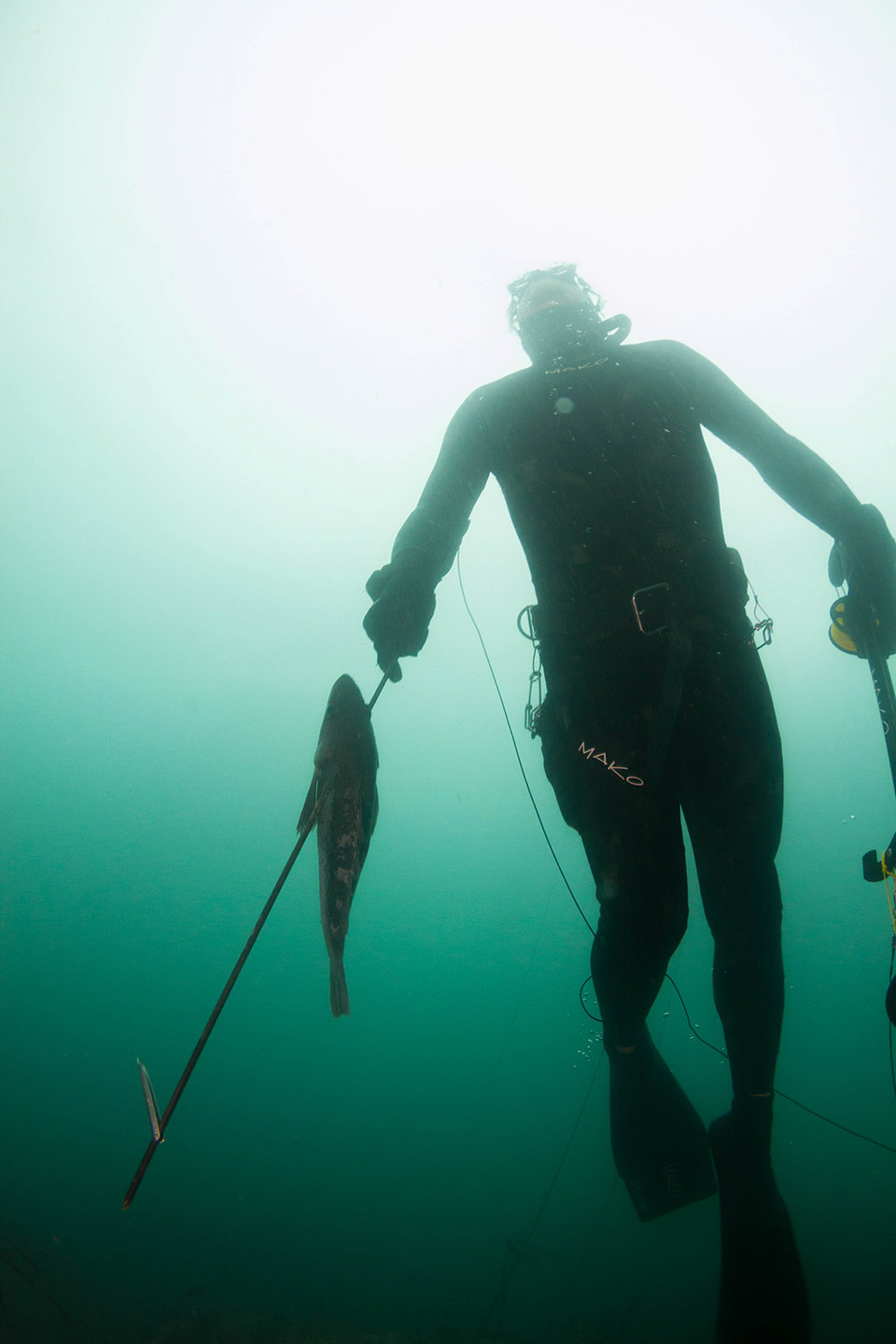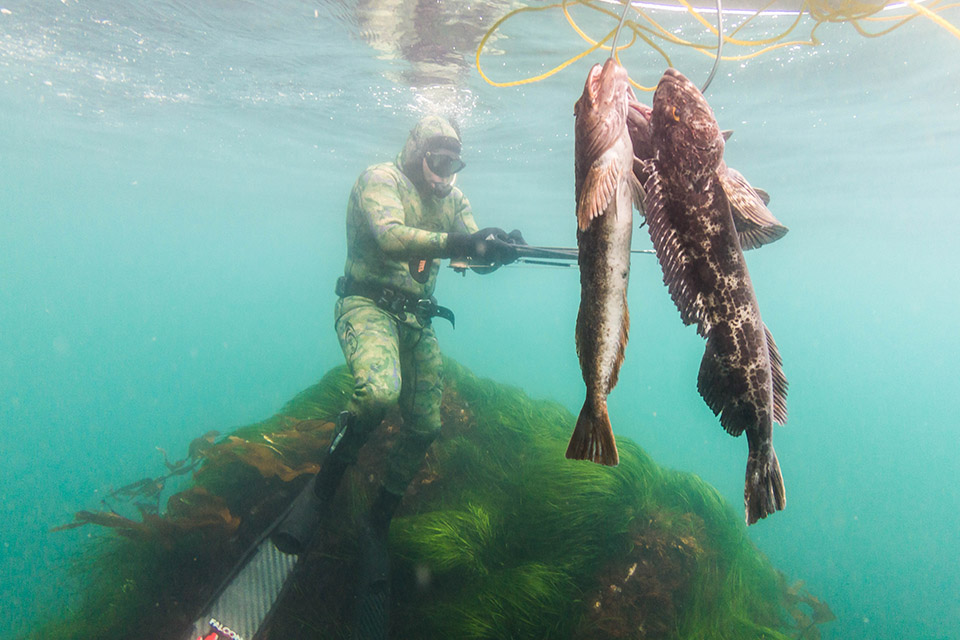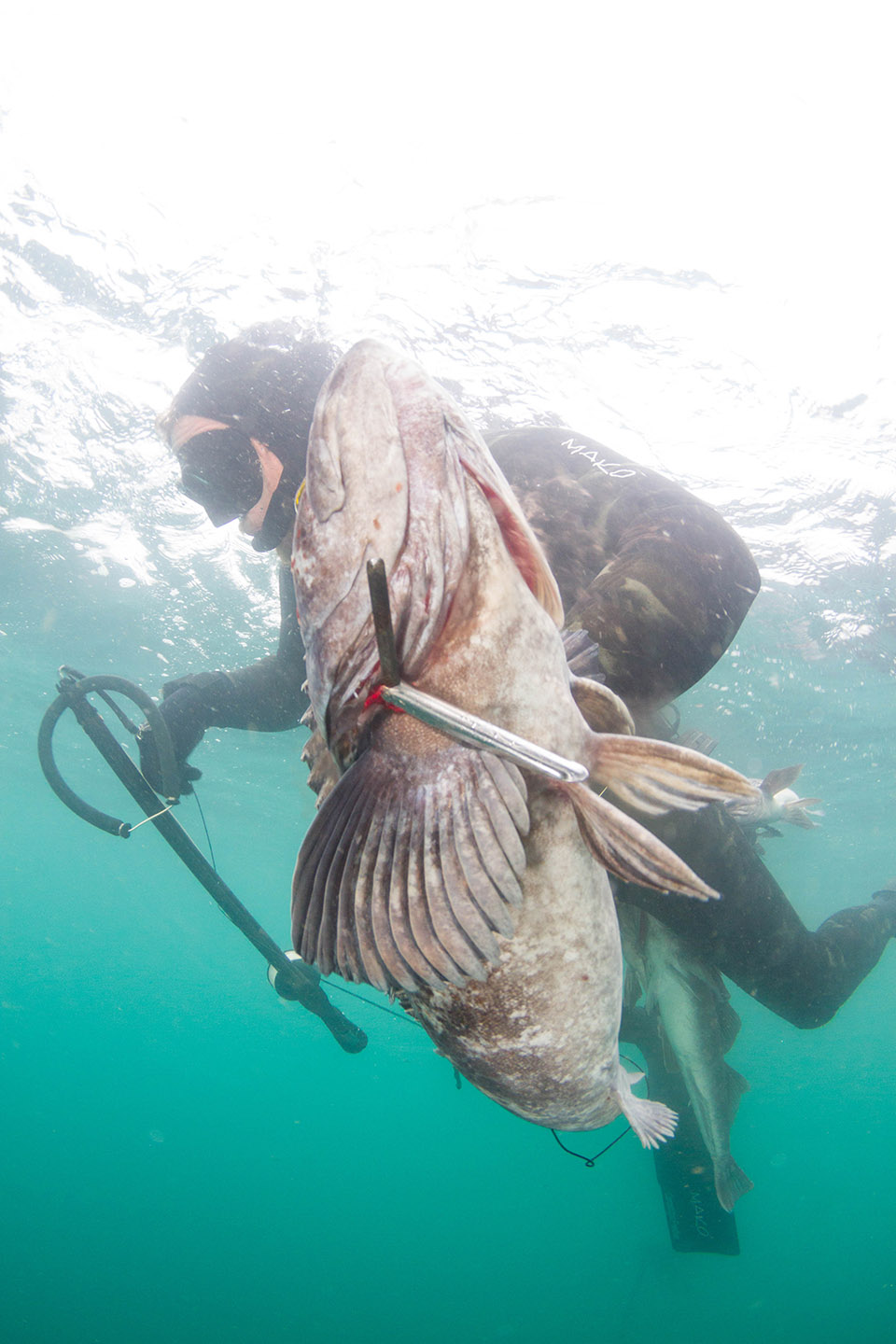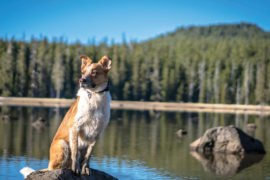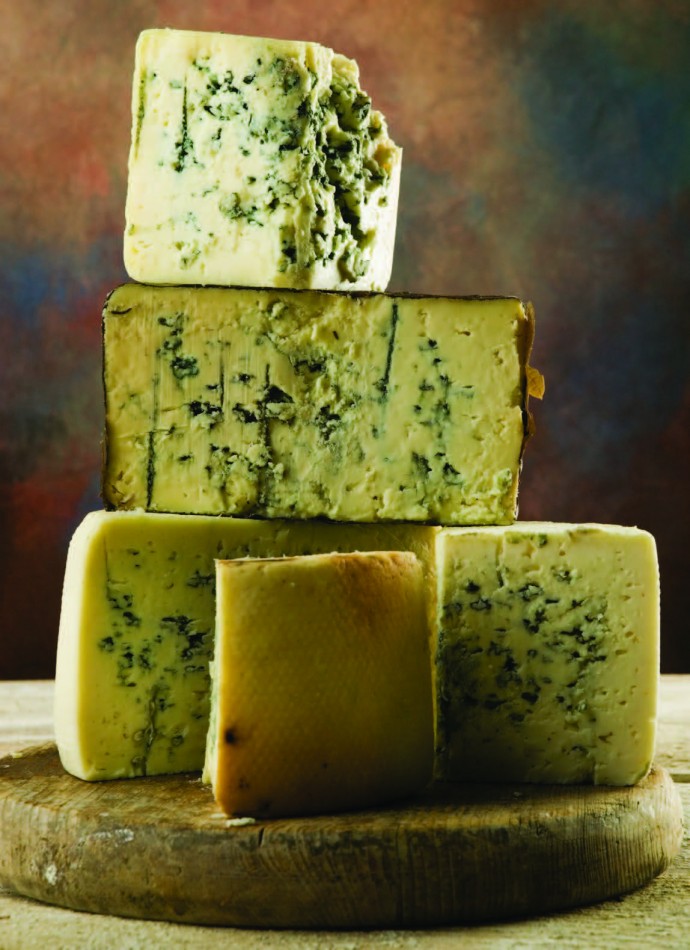The art of holding your breath and catching fish
written by Jeremy Storton | photos by Josh Humbert
“The first rule of shark club … you don’t talk about sharks,”
Josh Humbert, a pearl farmer from Tahiti now living in Portland, said to me when I asked about the potential danger. The rest of the crew, Alexa Cole, Lars Rutkowski and Stephen Crothers, all shifted their gazes downward except for Ben Moon, who looked sideways at me shaking his head a little. “The second rule of shark club … you don’t talk about sharks,” Humbert finished.
A week before, I had sat in a classroom in Oregon City next to Cole, an insurance agent in Portland. We became partners in a Freediver class put on by Dan Semrad of Oregon Freediving Co., where we learned to safely hold our breath and dive. The shark subject came up in class. “You have more chance to be killed by a vending machine than a shark,” head instructor Chris Bustad told us. “That’s why I avoid vending machines.” Freediving is a sport of acceptable risk, he told us. The relative safety of the classroom and learning that I could hold my breath for at least three minutes gave me confidence.
Still, the first and second rules of spearfishing swam in my head as I paddled my standup board through the open water toward our secret dive site on the central Oregon Coast. Ideal conditions are glassy, which means better visibility. However, the wind picked up early and brought the chop with it. The others motored past me in Crothers’ Zodiac inflatable boat. “If it’s your first time to shark club … you gotta dive,” I imagined hearing as they went by. The rough sea threatened to toss me into the dark water with God-knows- what swimming beneath me. I got to my knees to paddle. “It will lower my center of gravity and allow me to paddle faster,” I told myself. Turns out it was true.
Crothers anchored his Zodiac near a cold rocky outcropping. Fish don’t like the vulnerability of the open water. Come to think of it, neither do I. We anchored on the leeward side to protect us from the bulk of the wind chop and the swell. Nonetheless, a couple divers eventually became seasick and chummed the water before returning below.Humbert was first in the water. Several minutes ticked by before he surfaced again. One by one each of the divers in their camouflage wetsuits disappeared. After I got in, I stuck out my pole spear to check visibility; about 8 feet—better than expected. I slowed my breathing down like I learned in class. Deep belly breath in for four seconds, pause, slow exhale for ten, pause and repeat. This “breathing up” is meant to calm the mind, slow the heart and fill the body with oxygen. Then I did my peak inhalation breath, taking in as much oxygen as possible using my diaphragm, chest, shoulders and neck. I removed my snorkel and cleared my ears. Then I dove deeper and deeper.
The murkiness of the sea cleared at the bottom. My depth gauge said I was nearly 30 feet deep. The visibility was easily 12 feet, but the color was an eerie green reminiscent of thriller shark movies. Then a dark mass darted by. Just a fish. I was much deeper for longer than I had ever been in my life, and I was fine. So, I went after the fish. The others had spearguns, which are more adept at catching these larger fish. I had only a pole spear. I shot at a couple fish, but they got away, seeming more annoyed than threatened. I returned to the surface, took a few quick recovery breaths to maintain pulmonary blood pressure and prevent blackout. The risk of blackout is low, but an ounce of prevention is a great insurance policy. I spent a few minutes breathing up again. A proper surface interval is important to help remove excess carbon dioxide that builds up while breath-hold diving. It should be twice as long as the dive before returning below.
I dove again and saw a small surf perch that looked banal at that depth. I took a shot—nailed it! I returned to the surface with my catch. Despite the gray skies the fish glimmered with beautiful reds and blues in the light. I pulled out my knife and cut the spine behind the head to put it out of its misery and save the meat from excess stress hormones. I strung my fish to my board. I didn’t want to draw undue attention from any passing carnivore by carrying my stringer on my belt. I peeked in the Zodiac. It was filling up with black rockfish and Lingcod. Cole surfaced with a diver scallop she had found on the bottom. A short while later, Rutkowski surfaced with a large fish, the spear stuck straight between the eyes. He beamed.
Most of us started getting cold after two hours of diving. The stringers were full. Several diver scallops and a large purple urchin found their way into the boat. I began to paddle back to our entry point. As soon as I got back into the open water, however, the wind and chop almost knocked me over. I hadn’t thought about that-which-must-not-be-talked-about for the past couple hours, but I started thinking about it once again. This time I focused on something more pertinent—getting through the surf safely with my board and my one little fish.
Back on shore, Humbert said my little question got into his head and he couldn’t stop thinking about sharks. I noted that he kept his stringer of fish connected to his weight belt.
The cleaning table is where everyone turns jovial, where stories get bigger and banter becomes thick as muck. Humbert, Crothers and Rutkowski, who caught the most, drew a small crowd of onlookers and hungry seagulls. Rutkowski showed a little girl the large urchin he caught as it tried to escape the table. Humbert sold a couple fish to Japanese tourists, then expertly filleted a Ling Cod. Crothers pointed out the different parts of the scallop to Cole like a marine biology lab instructor. “I learned a ton listening to guys at the cleaning table over the years,” he said in his thick Wisconsin accent. As Ziploc bags filled with meat the conversation drifted to fish tacos and beer.
I asked the spearos why they spearfished as opposed to warmer, simpler means. “You’re really in the element on the same level with the animal. You need skill,” Cole told me.
I asked why she didn’t just SCUBA dive. “I like the silence of free diving. It’s just you and the ocean,” she replied. “When your heart rate slows down and you’re just feeling the water, it’s like going home.”
Epilogue:
Two days later I got a text from Humbert that said, “Shark attack today just up the coast from where we were.” I am a spearo now, and I don’t want to talk about it.


